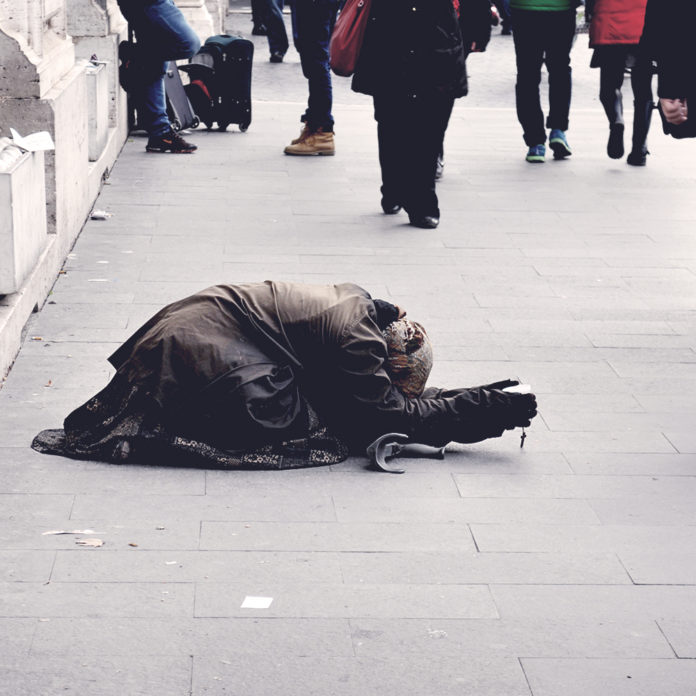
A few nights ago I was heading home from dinner with a friend when we were approached in our car by a man. He appeared at the driver’s window, his hair scraggly and his clothes torn.
“Please,” he said. “Please sir, I won’t ask you again. I just need R20 for the shelter. I haven’t showered or eaten in days. Please help me. Please, I won’t ask you again.”
In a situation like this it’s always difficult to know what to do. My friend, who is very kind hearted, paused what he was doing. He looked in his bag. “I don’t have anything.” I was seated in the passager’s seat, and I reached over: “Here, I have R20.” We gave it to the man and he walked away.
As with all of these encounters it’s difficult to know what to do. A part of you has compassion for a person who lives on the street, another part has heard a lot of horror stories about men buying glue or alcohol with money given to them and doesn’t want to encourage bad habits. Yet another part is tired of always being approached and asked for money. I too have responsibilities and bills to pay, I often think. I work hard. Are you doing what you can to make your situation better, or are you playing victim?
There’s no easy answer to any of these questions and as those of us who live in a third world nation with poverty all around us know, it is a dilemma that we are faced with daily. Here is how to best deal with this situation:
Don’t let yourself be manipulated
Many people use fear to get you to give to them. You are under no obligation to give to someone because you are “rich” and they are not. It is not fair or respectful for someone to pester you, or try ploys like saying “Hello my friend,” or “Listen me out, listen me out.” If you are feeling uncomfortable, afraid for your safety, or pressured, you need to get out of that situation as respectfully as you can. Say something like, “I’m sorry, I said no and I would like you to respect that.”
Give food
Rather than giving away money which you don’t know where it will be spent, if you feel moved to help someone, give them food. A loaf of bread or some canned goods can help someone when they are hungry without encouraging drug or alcohol abuse. Try to give away food that has some nutritional value, keeps well, and isn’t sugar based.
Rather focus on helping one “right” person
It is far more effective to build a relationship and try help one person who wants help and assistance than giving away coins to hundreds of random people. If you meet someone in your neighbourhood or on your daily drive who you feel has an authentic need for help, talk to them. Get to know them, and find out about their background, skills, and problems. It doesn’t have to be all at once but a little bit at a time. As you find out more about them you may discover ways in which you can help. Perhaps you have a neighbour who needs some gardening work done. Perhaps you can sponsor a child to go to school.
Support NGOs
Sometimes we don’t have time to invest into someone or to get to know them, so if we wish to help people then we can give to NGOs doing great work to help people. Make sure the NGO you support has evidence that they are handling their finances with authority. Partner with a church you trust and find out what their greatest need is. Make a monthly decision to give a certain amount to a cause you believe in.
The Bible says, “Blessed is he who has regard for the weak” (Psalm 41:1-2). Caring for people reflects the heart of God and it’s important to be someone who helps other people. Jesus treats everyone as though they are valuable. Don’t become hard hearted to others who have less than you have. Be a generous person who gives to those in need, but does it with wisdom and discernment.
